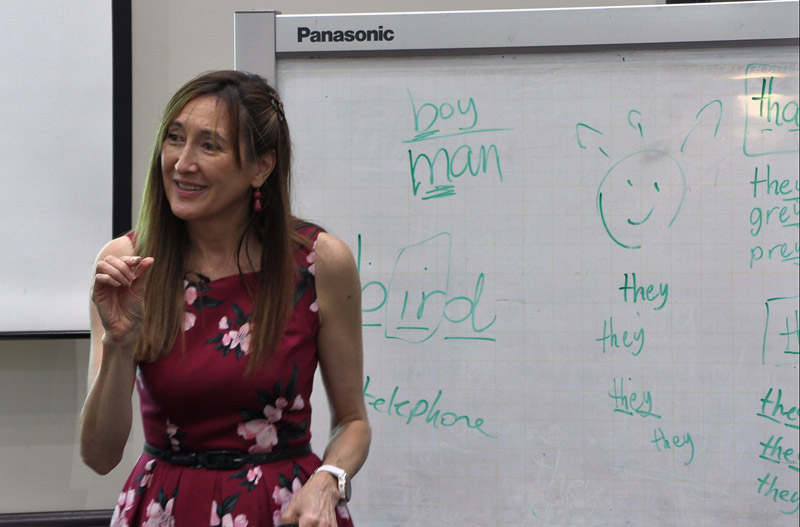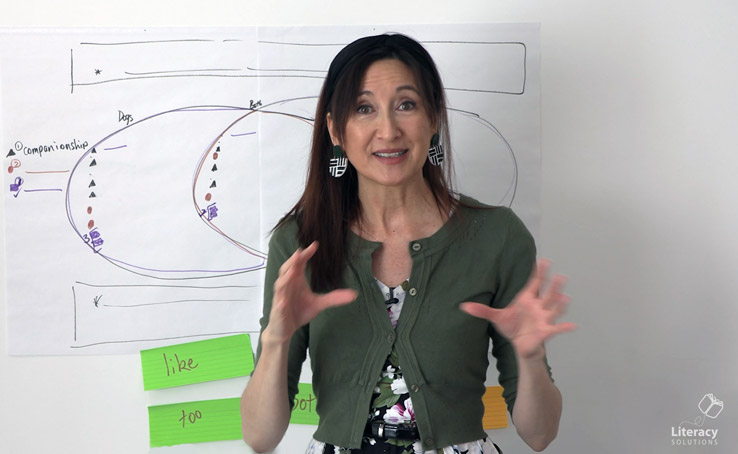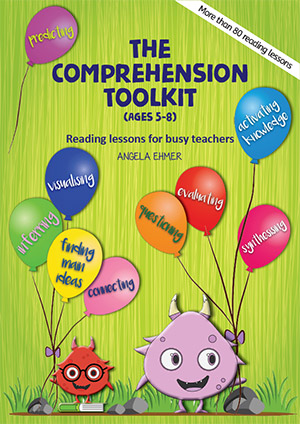Tuesday, 14 August 2012 at 4:40 pm
The classroom literacy program, sometimes referred to as the Literacy Block enables teachers to timetable for explicit teaching across reading, writing, speaking and listening, accompanied by differentiated learning, the independent application of skills and knowledge and a time to reflect or share.
In reading, approaches commonly used for explicit instruction include modelled reading and shared reading. These lessons may run for 15-20 minutes, with mini-lessons …
Continued... | Posted in Literacy general |
2 Comments »
Saturday, 7 July 2012 at 3:47 pm
A literacy block should provide a balanced program of literacy instruction including the following teaching/learning approaches to support reading and writing.
Essential Reading Components:
Modelled Reading
occurs when an expert reader reads a difficult text to less experienced readers, enabling the experienced reader to model how effective readers sound, solve and think about texts when reading
The “think aloud” strategy is used strategically by the expert reader to model …
Continued... | Posted in Literacy general, Reading, Writing |
11 Comments »
Monday, 7 May 2012 at 6:53 pm
A limiting factor in the development of reading skills in students and an impediment to classroom management for teachers is the ability of children to read independently for significant periods of time. A valuable strategy to deal with both issues is increasing reading stamina.
Building reading stamina supports students to read for an extended time, trains muscle memory and supports an increased attention.
Teaching a procedure for …
Continued... | Posted in Reading |
7 Comments »
Sunday, 15 April 2012 at 7:53 pm
With the introduction of the Australian Curriculum, teachers have never been so inundated with products and programs claiming to enhance or build the literacy skills of students. Pre-packaged, or commercially produced programs for phonics, high frequency words, word work and comprehension have been around for decades and online access has added another dimension to their use.
Some products even claim to be effective in ‘teaching comprehension’ …
Continued... | Posted in Literacy general |
7 Comments »
Thursday, 24 November 2011 at 10:27 am
Would you agree that a love of reading is developed, not innate? If so, you are likely to actively nurture a love and appreciation of literature, knowing that it is advantageous to the learner and an integral part of successful literacy instruction.
Have you ever observed students as they listen to a practiced author or storyteller read aloud, ever engaging the audience, beckoning active engagement by …
Continued... | Posted in Reading |
8 Comments »
Friday, 23 September 2011 at 11:27 am
Big kids too old for picture books?
What can picture book authors offer older students … more experienced writers, still developing crafting skills and learning the tricks of the writing trade?
Last week I shared, ‘Fancy Nancy’ by Jane O’Connor, with some Year 5 students, to highlight how cleverly the author used words, seemingly too complex for the intended audience, to paint the canvas of her …
Continued... | Posted in Literacy general |
8 Comments »
Sunday, 28 August 2011 at 10:49 am
Is our purpose clear?
A secondary student recently asked me why he needed to read novels at school, as he had no plans to ever read another one once he left.
I acknowledged his feelings, but explained that he’d probably view lots of narratives as films, plays or television shows. Therefore, it’s important to build knowledge of different ways ideas can be presented and may be …
Continued... | Posted in Reading |
7 Comments »
Monday, 8 August 2011 at 11:10 am
Writing games provide skills practice with authentic texts …
Simple games can provide opportunities for language experience, explicit teaching, coaching and collaboration. Here’s a simple one I was playing recently. You need 45 minutes for crafting, reviewing, revising, sharing and feedback.
Start with two sentences:
Jack went up the hill. He found Jill.
What to do
Organise students into pairs or groups of three and explain:
Your task is to work …
Continued... | Posted in Writing |
11 Comments »
Wednesday, 27 July 2011 at 8:53 am
Reading Strategy bookmark for younger readers.
Thank you for your comments and emails about the recent prompt card and bookmark. In response to early years’ teachers, we are happy to offer the Reading Strategy bookmarks for younger readers (PDF 342 kB). To limit the quantity of text, two different bookmarks have been created; one bookmark supports word solving, the other comprehension. Both bookmarks have prompts …
Continued... | Posted in Reading |
10 Comments »
Wednesday, 20 July 2011 at 8:49 pm
It is vital that students apply before, during and after reading strategies with confidence and independence. As students develop better understandings about what proficient readers do and think, it can be helpful to provide them with supports or scaffolds to prompt for the thinking required.
To assist students to “warm up” for reading, we are happy to provide you with a “Warm Up for reading” …
Continued... | Posted in Life, Reading |
16 Comments »




